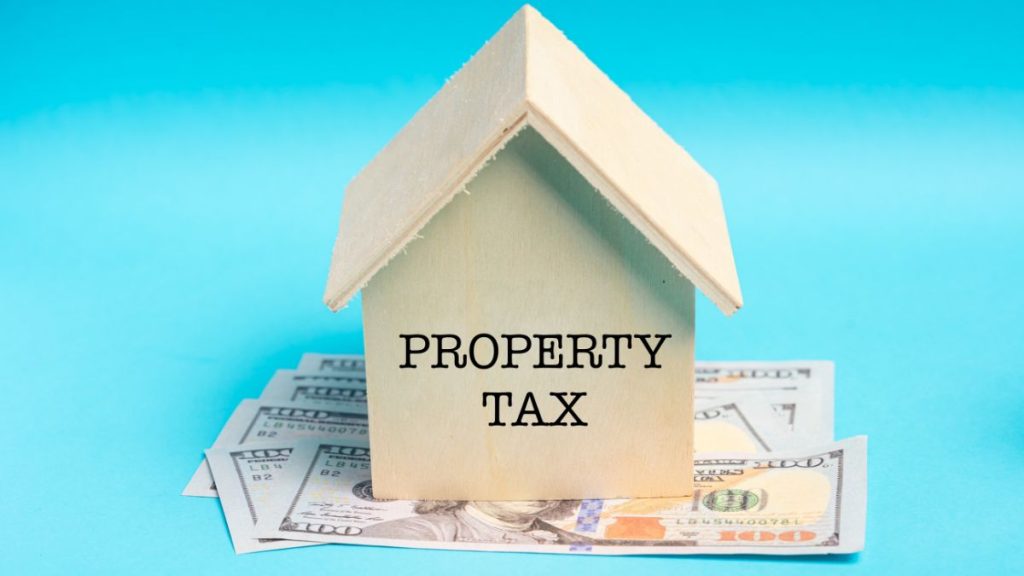Introduction
Brief Overview of Property Taxes in Orange County, California
Property taxes in Orange County (OC) are a vital part of homeownership and real estate investment. These taxes are based on the assessed value of the property and contribute to essential public services. Understanding how property taxes work in OC is crucial for both new and existing homeowners.
Importance of Understanding OC Property Tax for Homeowners and Real Estate Investors
Whether you’re a homeowner or a real estate investor, knowing how property taxes impact your finances is key. For homeowners, property taxes represent a significant annual expense, while for investors, these taxes can affect overall returns and long-term financial planning.
Highlight How Property Taxes Contribute to Local Services
Property taxes in OC fund local services such as public schools, road maintenance, infrastructure development, emergency services, and parks. These taxes are essential for maintaining the quality of life in local communities, making it important for homeowners to understand where their money is going.
How Property Taxes Are Calculated in Orange County
Explanation of the Property Tax System in California, Focusing on Proposition 13
California’s property tax system is unique due to Proposition 13, a law passed in 1978 that limits the amount of property taxes paid by homeowners. Under Prop 13, the base property tax rate in Orange County is 1% of the property’s assessed value at the time of purchase. This rate can only increase by a maximum of 2% per year unless there is a change in ownership or the property undergoes significant renovations.
1% Base Tax Rate of the Property’s Assessed Value
OC property taxes are calculated based on the assessed value of the property, which is usually the purchase price. This value is multiplied by the base tax rate of 1% to determine the yearly tax. For example, if a home was purchased for $500,000, the base property tax would be $5,000 annually.
Yearly Increase Limit of 2%
As long as the property remains under the same ownership and doesn’t undergo major improvements, its assessed value cannot increase by more than 2% annually. This means property taxes rise gradually, giving homeowners predictability in their yearly expenses.
Overview of the Assessed Value Process
The Orange County Assessor’s office is responsible for determining a property’s assessed value. This process involves reviewing sales data, neighborhood trends, and any changes to the property. Understanding how the Assessor evaluates property can help homeowners anticipate changes in their tax bills.
Additional Assessments and Local Charges
Beyond the Base Tax Rate: Bonds, Special Assessments, and Local Charges
While the base tax rate is 1%, additional charges can be applied. These include bonds for school construction, special assessments for services like street lighting, and other local charges specific to certain neighborhoods. These fees vary by location and can significantly increase the overall property tax bill.
Explanation of How These Additional Fees Vary by Neighborhood
Certain neighborhoods, particularly new developments, often have extra taxes to cover the cost of infrastructure and services, such as parks or fire stations. These fees can be tied to the specific benefits received by the residents in that area.

Discuss Mello-Roos Taxes and How They Finance Local Services
Mello-Roos is a type of special tax applied in specific districts to finance infrastructure projects such as schools, roads, and water systems. Homeowners in Mello-Roos districts typically pay higher taxes due to these additional levies.
Tips on Reviewing Tax Bills for Local Assessments
It’s important to carefully review your annual property tax bill to ensure all charges are accurate. Homeowners should look out for any unexpected special assessments or local charges and contact the Tax Collector’s office for clarification if needed.
Mello-Roos and Its Impact on Property Taxes
Definition of Mello-Roos and Its Purpose in Funding Public Infrastructure
Mello-Roos taxes are levied on properties in designated districts to fund public infrastructure projects. These taxes are imposed when local governments issue bonds to finance the development of new schools, streets, and other community services.
How Mello-Roos Districts Are Created and Which Areas in Orange County Are Affected
Mello-Roos districts are created when residents vote to approve additional taxes for new infrastructure. These districts are common in newer housing developments in Orange County, especially in areas like Irvine, Rancho Mission Viejo, and Ladera Ranch.
Example of Tax Impact
For a homeowner in a Mello-Roos district, property taxes can be significantly higher than the base 1% rate. For example, if a home has a base tax of $5,000, Mello-Roos could add several thousand dollars to the total tax bill, depending on the district and the bonds in place.
The Role of the Orange County Assessor
The Role of the OC Assessor in Determining Property Values and Tax Amounts
The Orange County Assessor’s office plays a key role in property taxation. The office is responsible for determining the assessed value of properties, updating values based on market conditions, and ensuring that property taxes are calculated accurately.

How to Contact the Assessor’s Office
If you have questions about your property’s assessed value or need to file for exemptions, you can contact the Assessor’s office by phone, online, or in person. They can provide information on tax bills, explain the valuation process, and assist with filing necessary paperwork.
Overview of Tax Exemptions Available
Homeowners may qualify for several tax exemptions, such as the Homestead Exemption, which reduces the assessed value of primary residences, and exemptions for senior citizens, veterans, and people with disabilities. These exemptions can help reduce the overall tax burden.
Important Property Tax Deadlines
Key Dates for OC Property Tax Payments
Property tax bills in Orange County are typically issued in November, with two payment installments due. The first installment is due by December 10, and the second by April 10. Missing these deadlines can result in penalties and interest.
Early Payment Discounts
Some counties offer early payment discounts, such as a 4% reduction if taxes are paid by November. Homeowners should check with the Orange County Tax Collector to confirm if such discounts are available.
Consequences of Late or Delinquent Payments
If property taxes are not paid on time, penalties and interest will be added to the tax bill. Additionally, long-term delinquency can result in tax liens on the property, which could eventually lead to foreclosure.
Installment Payment Plans
For homeowners struggling to pay their property taxes, installment plans may be available. These plans allow for taxes to be paid in smaller increments over time, helping to ease the financial burden.
How to Pay OC Property Taxes
Various Payment Methods Available
Homeowners have several options for paying their property taxes, including eChecks, credit cards, mailing in checks, or paying in person at the Tax Collector’s office. Different methods may have associated fees, so it’s important to review the options carefully.

Advantages of Paying Online
Paying online through the Orange County Tax Collector’s website is convenient and secure. It allows homeowners to make payments quickly, access records, and receive immediate confirmation.
How to Access Property Tax Records Online
Homeowners can access their property tax records online using their parcel number or address. This service allows them to view their tax bill, payment history, and any outstanding balances.
Tips for New Homeowners and Real Estate Investors
Advice on Budgeting for Property Taxes When Buying a Home in Orange County
New homeowners should budget for property taxes as part of their overall homeownership costs. It’s important to account for not only the base tax rate but also additional assessments and local charges, such as Mello-Roos, which can vary by neighborhood.
Considerations for Real Estate Investors
For real estate investors, understanding property taxes is essential for evaluating investment returns. Property taxes should be factored into long-term financial projections, as they can significantly impact cash flow and profitability.
How Home Improvements Can Trigger Reassessments and Higher Taxes
Major renovations or home improvements can lead to reassessment, which may increase the property’s assessed value and, consequently, the property taxes. Homeowners should be mindful of this when planning significant upgrades.
Appealing Property Taxes in Orange County
Steps Homeowners Can Take if They Believe Their Property Has Been Overassessed
If a homeowner believes their property has been overassessed, they can file an appeal with the Orange County Assessor’s office. The appeal process involves submitting documentation that supports a lower valuation, such as recent sales data or an independent appraisal.

Timeframes for Filing an Appeal
Appeals must be filed within a certain timeframe, usually between July 2 and November 30. It’s essential for homeowners to act quickly if they believe their assessment is inaccurate.
What to Expect During the Property Tax Appeal Process
During the appeal process, the Assessor’s office will review the homeowner’s evidence and may adjust the property’s assessed value. If the appeal is successful, the homeowner could receive a refund or credit for overpaid taxes.
Conclusion
Summary of the Importance of Understanding OC Property Taxes for Financial Planning
Understanding how property taxes work in Orange County is crucial for financial planning. By knowing how taxes are calculated, what additional assessments may apply, and how to appeal assessments, homeowners can better manage their tax obligations.
Final Advice on Managing Tax Obligations
Homeowners are encouraged to review their tax bills annually to ensure accuracy and stay informed about any changes in tax laws or local assessments. By keeping up with important deadlines and payment options, homeowners can avoid penalties and ensure they are maximizing any available tax exemptions.
Encourage Homeowners to Regularly Review Their Tax Bills
Property tax bills can change due to market conditions, local assessments, or property improvements. Regularly reviewing your tax bill ensures that you are aware of any changes and can address issues, such as overassessments, in a timely manner.

Leave a Reply